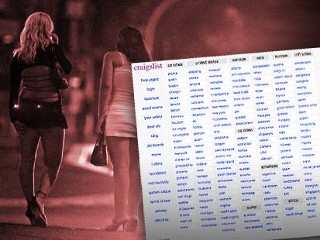CNN reports:
An Illinois sheriff filed a federal lawsuit Thursday against the owners of craigslist, accusing the popular national classified-ad Web site of knowingly promoting prostitution.
The sheriff is upset that the site maintains a bulletin board system which is very lightly policed by its creators. It is little more than a forum for people to place their own advertisements. Thus, principles of caveat emptor abound, as anyone who has tried to find an apartment through the service knows.
More importantly, Craig’s List is perhaps the best example of a site that should be immune from prosecution for the actions of its users under Section 230 of the Communications Decency Act. It exercises little control over what its users do, and that’s what makes the service both valuable and free. If the company had to hire thousands more people to examine every post that comes before it, its service would become more like Apple’s iPhone/iPod Touch App Store.
Section 230 allows websites like Craig’s List, Google, YouTube, Blogger, and pretty much every other user-driven Web 2.0 site the security to know they can operate free of lawsuits about what someone else, their users, did. Adam Thierer goes so far as to argue that it makes possible a real world analog for Nozick’s meta-utopia. Moreover, it is philosophically required by the tenet of justice known as the “principle of intervening action.”
Yet attorneys general and other politicians have been seizing on high-profile internet-related misfortunes like the MySpace suicide to push against Section 230’s safe harbor promise. Adam Thierer recently gave an excellent summary of where the section may be heading in the US. Other countries are even worse.
Perhaps even more dangerous than overt legal erosion of Section 230 through bad precedents (there are still some judicial defenders of the section out there, after all) is its covert destruction through coerced “agreements” forced upon ISPs and websites by AGs. They started popping up all over the place this summer and there is no end in sight. Indeed, CNN pointed out:
Craigslist entered into an agreement with 43 states’ attorneys general in November to enact measures that impose restrictions on its Erotic Services section. The agreement called for the Web site to implement a phone verification system for listings that required ad posters to provide a real telephone number that would be called before the ad went public.
Let’s hope the new administration stops the trend and puts life back into Section 230.


 The Technology Liberation Front is the tech policy blog dedicated to keeping politicians' hands off the 'net and everything else related to technology.
The Technology Liberation Front is the tech policy blog dedicated to keeping politicians' hands off the 'net and everything else related to technology.